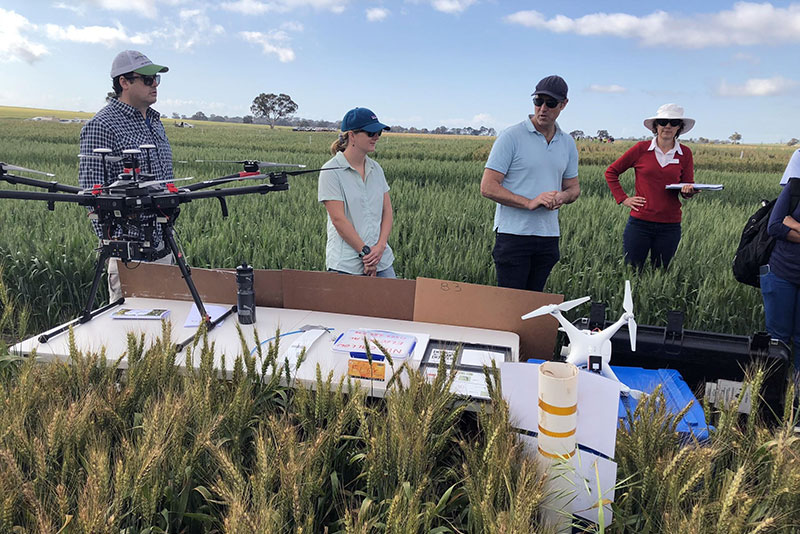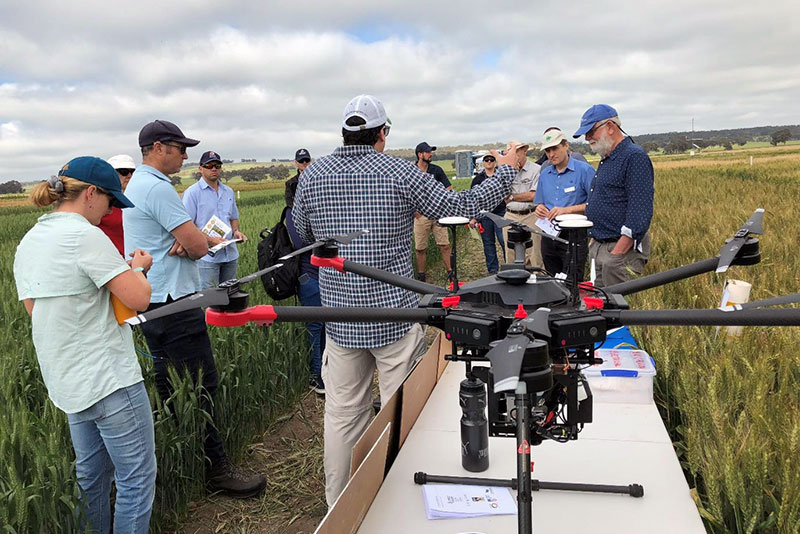The data
Partners through the ARC Centre of Excellence in Plant Energy Biology collect a wide range of datasets to investigate the desirable plant traits and growth conditions for crop yield under frost, including plant growth trait, hyper- and multi-spectral data, proteomics and metabolomic data.
The challenge
Datasets were all processed and stored in separate locations. After publication or report writing, the data effectively became “lost” to other researchers. The researchers wanted the data they generated to be findable and useable by others in their team and more widely to advance crop science.
The solution
With the support of AgReFed partners, The University of Western Australia (UWA) and the Department of Primary Industries and Regional Development (DPIRD) researchers worked together with their library and IT support to bring together and deliver the frost trial datasets in a standard format.
- Findability of the collection was enhanced through the creation of metadata records discoverable through Research Data Australia
- The research team are now able to upload their processed trial datasets into their local MySQL database
- They are now able to select, combine and download by other co-variates of interest including plant growth/grain yield, protein-metabolite data and on-site weather data, as well as factors such as sowing time, variety type and replicates
- New data added to crop trial datasets will also be discoverable, and for reproducibility the workflows of each of the accessed datasets will be easily accessible via the metadata
- The frost trial data collection is hosted by UWA and accessible to the broader scientific community via an OpenAPI and through AgReFed
This work will assist the research team in identifying new traits for plant breeding programs and engineering. It also makes their research findable and available to other crop researchers.

Frost trial site field day. From left to right: Dr Nicolas Taylor, Ms Bonny Stutsel and Dr Nik Callow UWA and Ms Jacki Bucat DPIRD.
The impact
Research insights

Senior Lecturer
Dr Nicolas Taylor
“This has been a really great test case for how we can integrate all these types of data. For example, yield has been integrated with drone data. We are starting to see some really interesting things.”
Continuing to use geospatial hyperspectral data to predict protein and metabolite analysis has the potential to generate novel findings and to save time and effort on in-field sampling.
Practice change
Senior Lecturer Dr Nicolas Taylor stated that the FAIR principles
“All seemed daunting initially.”
Through working through AgReFed FAIR and Trusted assessments and the process of making data more FAIR, Dr Taylor states he now
“has an understanding of what it means and how important it is to data. I’ve become an advocate. At a recent conference I advocated for the FAIR (principles) to help advance research.”
In response to institutional calls for research data to be made more FAIR, Dr Taylor highlights that
“our group is now an exemplar of how you can do it.”
The future
Dr Taylor stresses the need for 'data people' and domain scientists
“to continue to build personal relationships. We need to learn how to talk the same language.”
UWA and DPIRD will continue to add to and combine new types of data into their system for novel insights into crop research for productivity.
With the crop research sector, including AgReFed collaborators, the next steps envisaged for the UWA and DPIRD team is describing their data using standard language (controlled vocabularies). This will help give their data collection more meaning and increase its usability across the agricultural research sector.

Frost trial site field day



